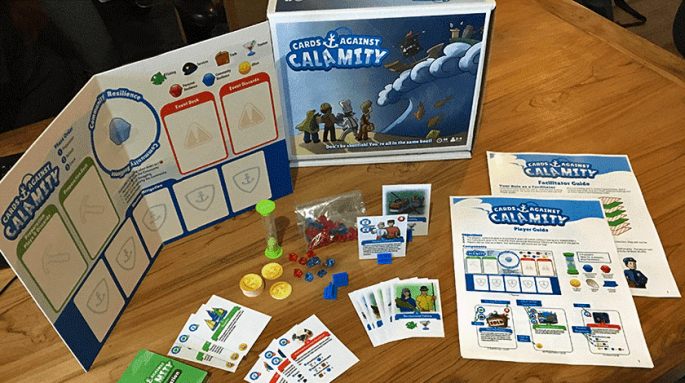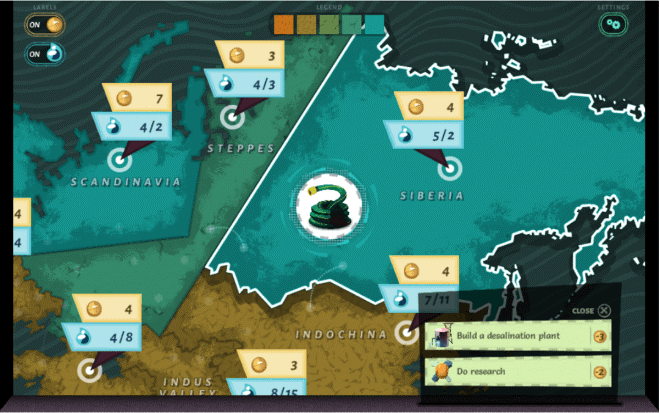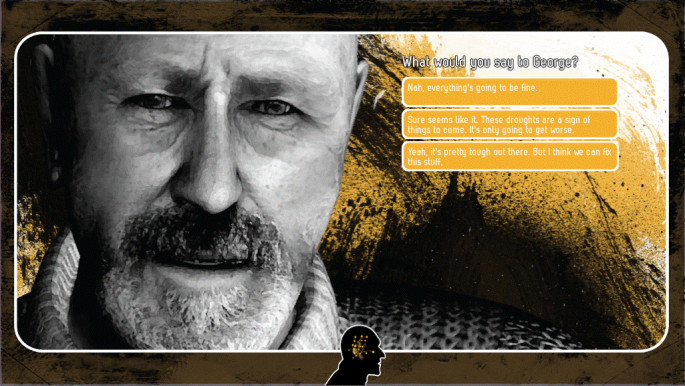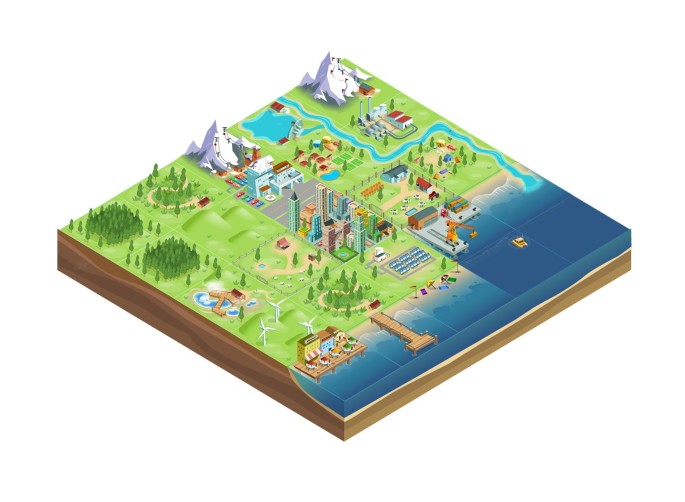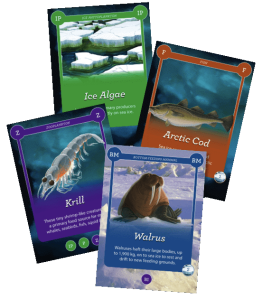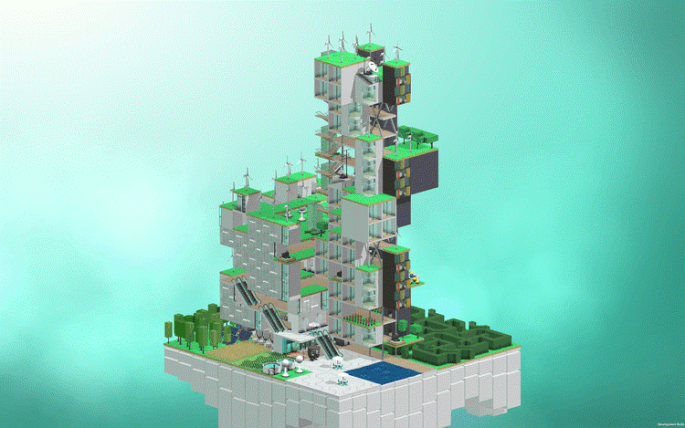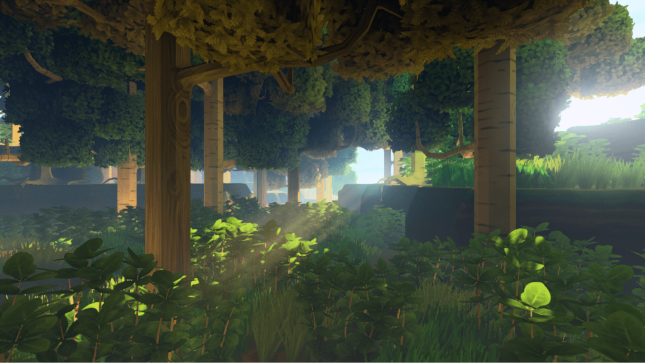-
Serious Games: Conservation and Community
May 9, 2018 By Brittany Williams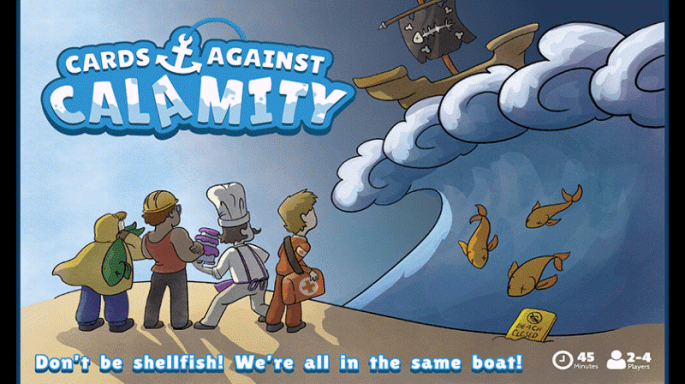
In preparation for the Wilson Center’s Earth Challenge 2020 initiative, the Serious Games Initiative rounded up educational games with themes of conservation and community. These games tackle issues ranging from community resilience to dystopian futures—and everything in between. While not a comprehensive list of environmental games, we hope it inspires you to check out these games and think of ideas for new ones that might use data from the upcoming Earth Challenge 2020 hackathons.
Cards Against Calamity

Conceptualized by our own Serious Games Initiative at the Wilson Center, with expertise from the Environmental Law Institute (ELI), support from the National Oceanic and Atmospheric Administration (NOAA), and design and development by 1st Playable, Cards Against Calamity is a board game about the impact of community collaboration on coastal resilience. Each player takes on the role of a stakeholder in a coastal community. Players must then work together to pass policies to tackle the problems that face their community, like hurricanes, fish diseases, or touristy hipsters invading the town. The goal is to keep both players and the community thriving, and how you navigate these events and policies impacts the final outcome. Cards Against Calamity won the gold medal at the International Serious Play Awards in 2017, and has been used globally to teach people about coastal resilience. (Board Game, $41.99, College & Up)
Aquation

Aquation is a web-based game developed by Filament Games for the Smithsonian Science Education Center. The player is shown a map of regions of the world where people do not get enough water to survive. The goal of the game is to achieve global water equity while responding to news that could help or hinder the player’s progress. Players can do research, craft desalination plants, and send humanitarian aid to ensure that everyone has water in this strategic puzzle game. This game is geared towards young students, but it can be a good option for anyone who wants to learn more about water aid and policies. (Web, iOS & Android, Free, Grade 5 & Up)
Precipice

Precipice was developed using research and work from the Global EESE, and developed by a team at the Center for Digital Media in Vancouver, Canada. The game opens on a dystopian future, where the global population’s lack of action on environmental issues has caused mass flooding, famine, and widespread pollution. The player must go back in time to a local coffee shop and convince characters to do their part to help save the future. As part of this process, the game highlights key conservation practices, from convincing people to ride bikes or take public transportation instead of driving, to joining conservation groups and promoting responsible recycling practices. With time travel and an arsenal of tips to help the Earth, players can experience how messages of conservation are a global concern. All of the information in the game is supported by research that can be found on the Precipice website. (Windows, Free, Grades 10 & Up)
Electrocity

Made by Genesis Energy NZ in New Zealand, Electrocity is a game where the player seeks to grow their city’s population and tourism while avoiding negative impacts on the environment. The player can enact policies that will help conserve energy, but could make the town’s citizens upset and leave. There are a wealth of construction choices, such as beaches and ski resorts, that could increase wealth and population, but always at an environmental cost. Electrocity also has a resource page for teachers that includes links to information on different types of renewable energy. (Web, Free, Grades 7 & Up)
Eco Chains

Made by The Polar Hub, Eco Chains is a card game for 2-4 players that helps users learn about Arctic food chains. Each player starts with a set amount of sea ice, which is crucial for polar ecosystems. Players build up their food webs while facing events that could benefit or harm their food chain and sea ice. The Eco Chains webpage contains resources for educators at the middle school level and up and has an article for further reading on the impact of environmental change on the Arctic. Eco Chains’ director Dr. Stephanie Pfirman visited the Wilson Center earlier this month, where she said that by playing this game, users were able to retain more information about sea ice ecosystems than those who just read articles and research. (Board Game, $17.50, Grades 6 & Up)
Block’hood

Winner of the Best Gameplay at the 2016 Games For Change festival, Block’hood by Plethora-Project challenges players to build a neighborhood while maintaining ecological balance and not destroying the local natural habitat. Each block produces and consumes resources and those that do not get what they need will end up decaying and collapsing. Both humans and animals will move into the neighborhood and the player must strive to keep balance and figure out architectural structures that allow for ecological harmony. Block’hood can be found via Steam or Humble Bundle. (Steam, Windows, Mac, Linux, $14.99, Grades 6 & Up)
Eco

Eco is a multiplayer online game that asks players to collaborate and build a civilization. Players are tasked with gathering resources, building shelters, and eventually building a government and economy to form a stable society. But this comes at a cost; taking too many resources too quickly could mean polluting and destroying the world. Eco is funded in part by the Department of Education and had a successful Kickstarter campaign in 2015. It also won the 2016 Games for Change Climate Challenge and won an award at Penny Arcade Expo (PAX) in 2015. (Steam, Windows, Mac, $29.99, Grades 4 & Up)
To find more games, check out Science Game Center and Games for Change, which offer lists and archives of environmental science educational games, as well as other science-themed games. Would you like to highlight games not on this list? Please send them to us via @WilsonSTIP on Twitter!
Brittany Williams is a Research Assistant/Intern for the Serious Games Initiative within the Science and Technology Innovation Program at the Wilson Center. Follow her on Twitter at @renegadehanar.
 A Publication of the Stimson Center.
A Publication of the Stimson Center.

